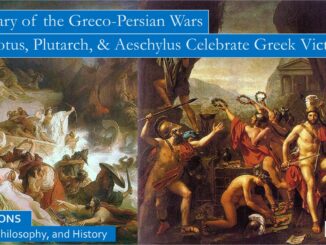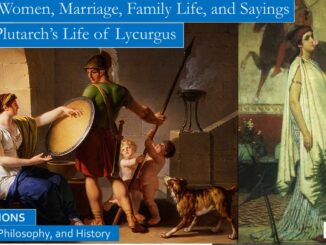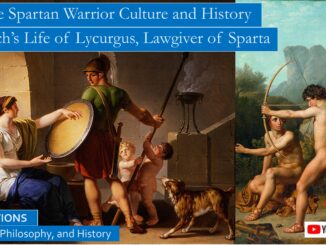
Summary of Greco-Persian Wars, Ancient Historians Herodotus, Plutarch and Aeschylus Celebrate Greek Victory
The wars between Greek city-states, and Persian influence in these wars, continued after a short peace, and lasted another generation, exhausting the Greek city-states, leading to their subjection of Philip of Macedon and Alexander the Great. The lesson that Alexander learned from of all these wars, starting with the Greco-Persian Wars, and from Xenophon’s leading the Greek mercenary armies from the heart of the Persian Empire, Babylon, back to Greek territory, was that the Greek hoplite armies were vastly superior to the Persian fighting forces. This meant for Alexander the Great that the Persian Empire was ripe for the taking. […]


